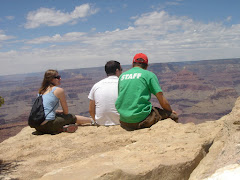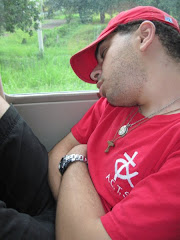If the Trinity could have a motto, I think this would be it:
Come home and be loved. Two Sundays ago we heard at Mass that God is love, thus
the Trinity that we celebrate today is also love. The Trinity is the source of
love.
In the Gospel Jesus instructed the disciples to “Go,
therefore and make disciples of all nations” And they are to achieve this by
doing two things:
1) Baptizing in the name of the Father, and of the Son, and
of the Holy Spirit.
2) Teaching them to observe all that I have commanded you.
Come home and be loved.
In Baptizing others, the disciples are saying come home.
Come to God, come in union with the Trinity and be at home.
In Teaching others, the disciples are saying be loved. For
in observing all that Jesus has commanded them, is to love. Jesus’ teachings
are centered on love. Love of God, Love of Self, Love of Others – Neighbor and
Enemy, and Love of Creation.
Now where does that leave us – well the call is still the
same – “Go, therefore and make disciples of all nations” – by baptizing and teaching
– come home and be loved.
All of us may not be called to physically baptize people,
but each us are called to bring people home. We are to bring people to God. We
may not realize it, but we are different because we were baptized, because we
are Christian. In Baptism our sins were forgiven both original and personal, we
received the gift of the Holy Spirit, and we entered into the community of God
and are united with all those in heaven and on earth. In baptism we received
the virtues of Faith, Hope, and Love. Faith being the foundation of our
relationship with God. Hope being the promise of eternal life. Love being the
bond between all of us: God, creation, and humanity; that gives us the strength
to live the Christian life of love. Because of our Baptism, we know what it is
like to come home. You and I can share that with others. We can invite people
to come home, both into our physical homes of our biological family and into
our parish home of our spiritual and eternal family.
All of us are also called to teach, to invite people to “be
loved”. We teach by the way that we live our lives. We teach by the way that we
love others. We may not say to others “be loved” but we do so by our actions.
By sharing with those less fortunate than us, by forgiving others when they
hurt us, by admitting that we are wrong and making amends when that happens,
and by praying for each other.
Come home and be loved. This is the heart of the Trinity and
is the heart of our faith. When we open ourselves up to the sacrament of
confession we say to God “I want to come home and be loved” and God is saying
to us “Come home and be loved.” When we come to Mass we are making a decision
to “come home and be loved.” Throughout Mass, through songs, through the Word,
and through the homily, we hear the message of “come home and be loved.” In the
Eucharist, Jesus invites us to “come home and be loved.” In becoming the Holy Eucharist,
the Body and the Blood, Jesus earns to be in the physical homes of our body and
wants to love us. In receiving the Eucharist, we invite Jesus into our homes;
we invite Jesus to love us. And when we leave Mass, Jesus commands us as he did
his disciples back then, to go, therefore and make disciples of all nations –
by baptizing and teaching. Go, show people love, go bring people home, go and
help them be loved.
Welcome home and be loved.
The Solemnity of the Most Holy Trinity
May 31, 2015
St. Peter's Church
Point Pleasant Beach, NJ

















